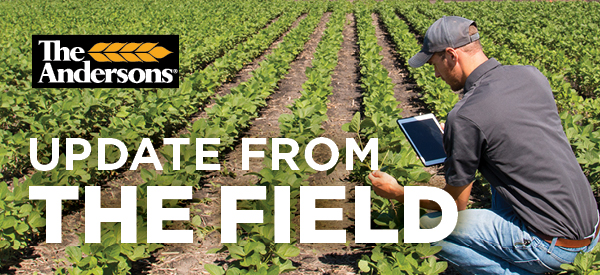Update from the Field: Reduce, Reuse, Recycle
Posted by Dave Dyson, Agronomist on September 15, 2021

The phrase “Reduce, Reuse, Recycle” can be traced back to the mid 1970’s. Gaylord Nelson, then a U.S. Senator from Wisconsin, proposed the first Earth Day on April 22, 1970. This ultimately led to the creation of the Environmental Protection Agency (EPA) the same year. In 1976, Congress passed the Resource Conservation and Recovery Act to increase recycling and conservation efforts as waste became a bigger problem. It is believed that the slogan “reduce, reuse, recycle” was born at this time. The agriculture community has been recycling nutrients since the beginning of farming. We have always known residue from the previous crops can hold large amounts of nutrients. In the past, others have tried with some success, to hurry the conversion of residue into a usable form for future crops.
Crop residue can be a concern for growers, especially residue from a large corn crop. Corn residue can damage equipment and restrict seed-to-soil contact the following year during planting. Corn residue can lock up valuable nutrients as well, Figure 1.
Figure 1: According to Purdue University, the residue of previous crops can hold valuable nutrients.
According to Purdue University, the residue of a 200 bu/ac corn crop contains 266 units of nitrogen, 114 units of phosphorus, and 266 units of potassium. Two main methods are used to break down residue, physical and/or chemical. Physical methods include tillage and stalk choppers, however, physical methods can only extend the mineralization process up to 3 years. A few of the chemical methods normally practiced require high rates of UAN, which can be costly and require an additional application pass for proper coverage.
The Andersons has a biological solution to help degrade crop residue, Bio Reverse™. Bio Reverse can be applied with an herbicide or fertilizer application pass, which eliminates the potential for compaction and added cost from a separate pass. Bio Reverse is a unique, tough and stable formulation that has been designed to compost and break down residue to improve seed-to-soil contact, reduce planter or tire damage from tough crop stalks, and reverse nutrient tie up in crop residue to provide more available nutrients prior to next season’s planting. Bio Reverse may be applied with fall herbicides, mixed with liquid fertilizers, impregnated on dry fertilizers, included in pivot irrigation, or sprayed with any other carriers that may be applied in the spring or fall. We applied Bio Reverse in the fall of 2020 and saw a large difference in residue by the spring of 2021, figure 2.

Figure 2: This picture taken in the spring of 2021 by Sierra Dice shows a drastic difference between the fall 2020 Bio Reverse treatment, right, and the untreated stalks, left.
The nutrient release was documented to be more than ten times higher where Bio Reverse was applied verses the untreated area, figure 3.
Figure 3: This chart shows the difference in nutrient release. More than 10 times the amount of nutrients were released where Bio Reverse was applied at a rate of 1pt/ac compared to the untreated area.
In conclusion, Reduce damaging residue, Reuse residue for the next year’s crop, and Recycle the residue by mineralizing the locked-up nutrients. Bio Reverse can be the solution to a growing problem created by ever-increasing yields. If you have any questions regarding rates and application timing of Bio Reverse, contact your local trusted Ag Advisor from The Andersons.
FOR MORE INFORMATION:
Please complete the form, and we’ll get you in touch with your Territory Manager from The Andersons.

Dave Dyson is a regional agronomist for The Andersons’ Farm Centers which are located throughout Ohio, Michigan, and Indiana. He is an Indiana native and grew up on a dairy farm in Miami County. A graduate of Purdue University with a degree in Crop & Soil Science, Dave has a deep knowledge of various agronomic topics and is committed to helping growers improve their crops. If you have any questions, Dave can be reached at david_dyson@andersonsinc.com.
© 2021 The Andersons, Inc. All Rights Reserved. Bio Reverse is a trademark of The Andersons, Inc.




